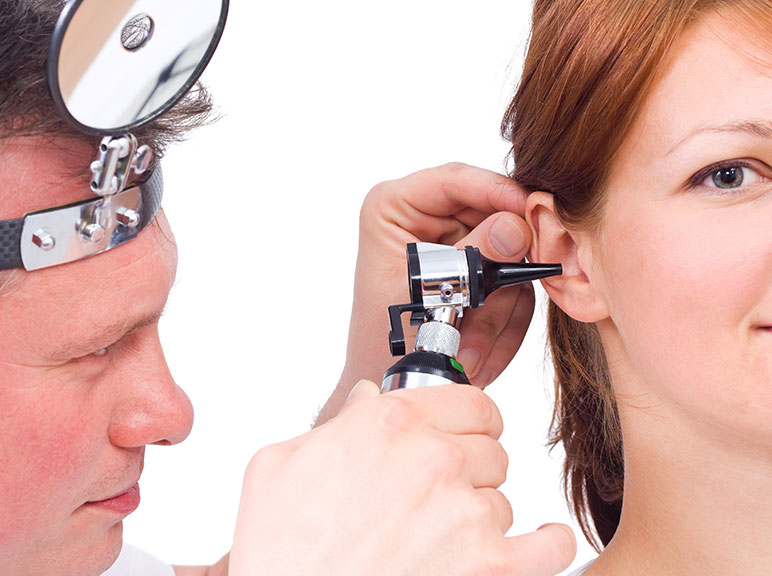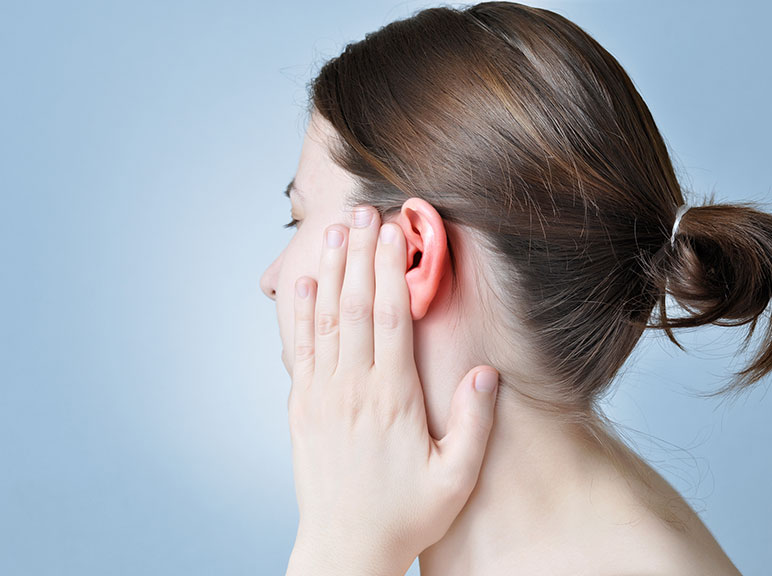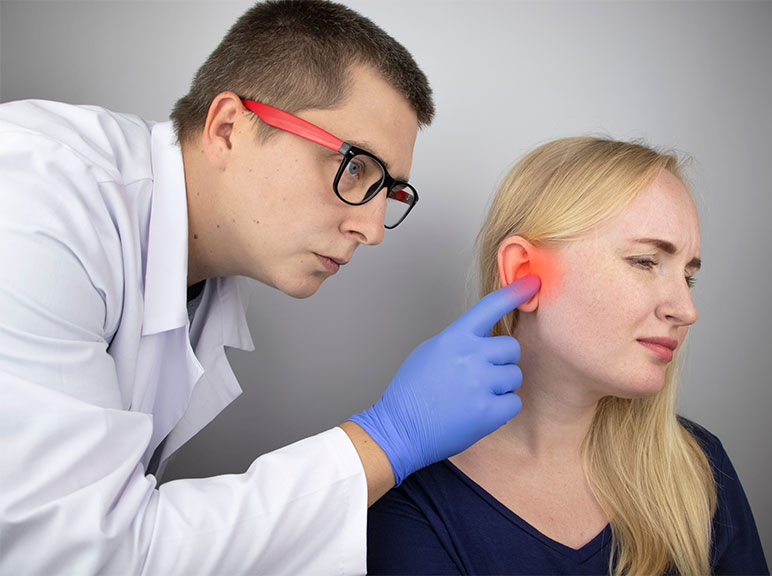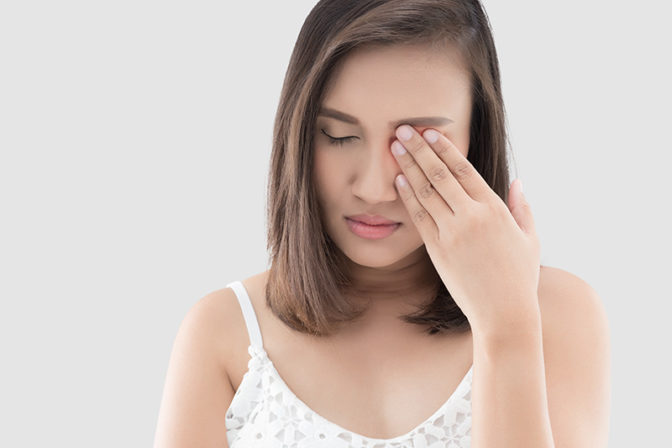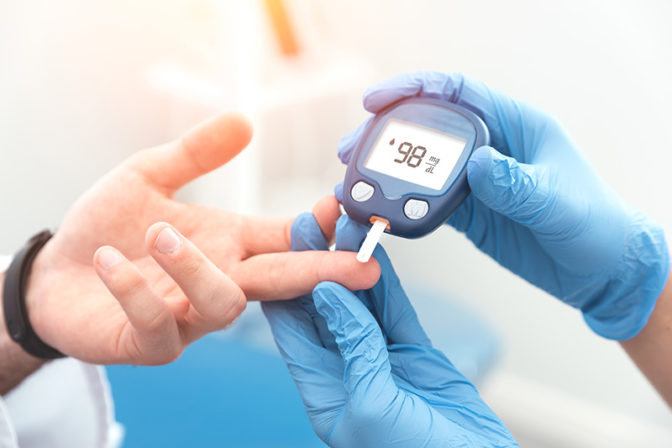Dizziness
Dizziness is used to describe a feeling that is weak, unsteady, faint or woozy.
Constant dizziness can have a significant effect on one’s life. Dizziness is usually not a life-threatening problem.
The treatment depends on the cause and symptoms of an individual.
Symptoms
Light-headedness
Light-headedness is a feeling that one is about to pass out or faint. Light-headedness often improves or goes away when a person lies down. If light-headedness gets severe, it can lead to a feeling of almost fainting or a fainting spell (syncope). One may sometimes vomit or feel nauseated when they are light-headed.
The causes of light-headedness are:
- Allergies.
- Illness such as cold or flu
- Fever, vomiting, diarrhoea, and other illnesses that lead to dehydration
- Very deep or rapid breathing (hyperventilation)
- Stress and anxiety
- Consumption of alcohol, tobacco and illegal drugs
Vertigo
Vertigo is a feeling that a person and their surroundings are moving when, in reality, there is no movement. One may feel as they are off-balance, spinning, falling, whirling, tilting or off balance. When one has severe vertigo, they may experience nausea or vomit. They may also have trouble standing or walking, and they may lose balance and fall.
Although dizziness can occur at any age, it is usually prevalent among older people. Some older adults may have a fear of dizziness and may limit their social and physical activities. Dizziness may also lead to falls and other injuries.
The causes of vertigo are:
- Middle ear disorders, like benign paroxysmal positional vertigo (BPPV), Meniere’s disease and vestibular neuritis
- An ear or head injury
- Painful migraines, debilitating headaches that often occur with vertigo, nausea, vomiting, and sensitivity to light, noise, and smell
- Reduced blood flow through the arteries that supply blood to the base of the brain (vertebrobasilar insufficiency)
Causes of Dizziness
The typical causes of dizziness are migraine, certain medications, and alcohol.
Dizziness could result from vertigo as well. Vertigo and vertigo-related dizziness is caused by benign positional vertigo (BPV). BPV causes short-term dizziness when a person changes positions quickly, for example, sitting up in bed after lying down.
Meniere’s disease can also trigger dizziness and vertigo. Meniere’s disease leads to fluid build-up in the ear that may lead to ear fullness, hearing loss, or tinnitus. Another possible cause for dizziness and vertigo could be an acoustic neuroma. Acoustic neuroma is a noncancerous tumour that forms on the nerve that connects the middle ear to the brain.
Some other possible causes of dizziness are:
- low blood pressure
- heart muscle disease
- reduction in blood volume
- anxiety disorders
- anaemia (low iron)
- low blood sugar (hypoglycaemia)
- ear infection
- dehydration
- heatstroke
- over-exercising
- motion sickness
In some rare cases, dizziness could result from a stroke, multiple sclerosis, a malignant tumour, or another brain disorder.
Treatment
Dizziness can usually get better without any treatment. The body will often adapt to whatever is causing dizziness within a couple of weeks.
If a person seeks treatment, the doctor will decide the treatment on the cause of the condition and symptoms. It may include balance exercises and medications. Even if the reason is not found or if dizziness persists, prescription drugs and other treatments may make the person’s symptoms more manageable.
Water pills
If an individual has Meniere’s disease, the doctor may recommend taking a water pill (diuretic) along with a low-salt diet may help one reduce their dizziness episodes.
Medications to relieve dizziness and nausea
Drugs could be prescribed by the doctor to provide instant relief from dizziness, vertigo and nausea. These may include prescription anticholinergics and antihistamines.
Therapy
Head position manoeuvres.
A technique known as Epley manoeuvre usually helps to resolve benign paroxysmal positional vertigo faster than just waiting for the dizziness to get cured. It can be performed by a doctor, a physical therapist or an audiologist. It involves manoeuvring the position of the head and is results are usually seen after one or two treatments.
Balance therapy
Balance therapy involves learning certain exercises to help make the balance system less sensitive to motion. This physical therapy technique is known as vestibular rehabilitation. The vestibular rehabilitation technique is used for people with dizziness due to inner ear problems like vestibular neuritis.
Psychotherapy
Psychotherapy is used to help individuals whose dizziness is due to anxiety disorders.
Surgical and other procedures
Injections
The doctor may inject your inner ear with an antibiotic to disable the balance function. The unaffected ear takes over that function.
Removal of the inner ear sense organ
This removal procedure is rarely used and is called labyrinthectomy. It disables the vestibular labyrinth in the ear that is affected. The balance function is taken over by the other ear. This technique may be used if one has severe hearing loss, and the dizziness did not respond to other treatments.
Vertigo and dizziness may affect one’s balance and motion. One may have difficulty standing, walking and maintaining balance. Driving and operating machinery during episodes of vertigo and dizziness should be avoided.


